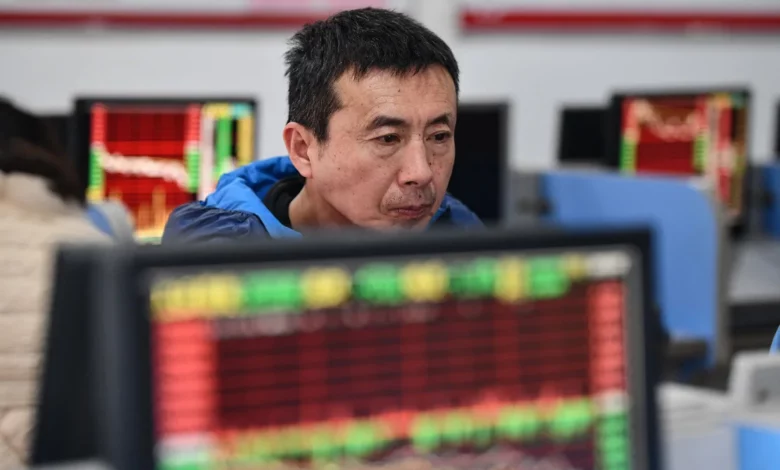
Despite recent attempts by Beijing to shore up confidence in the economy and stem a protracted stock market slump that has wiped out $6 trillion in value in three years, investors are still rushing for the exit.
The Shanghai Composite index fell 6.2 percent, its biggest weekly loss since October 2018, while the Shenzhen Component index shed 8.1 percent, its largest drop in three years. The indexes have lost more than eight percent and 15 percent respectively since the start of the year.
China’s blue-chip CSI 300 index, comprising 300 major stocks listed in Shanghai and Shenzhen, also fell 4.6 percent, notching its worst week since October 2022. The index is down 7 percent year-to-date.
A record downturn in its dominant real estate market, high youth unemployment, deflation, and a rapidly falling birthrate are just some of the issues ailing the world’s second-largest economy.
The International Monetary Fund expects annual growth in China’s gross domestic product to slow to 4.6 percent this year — from 5.2 percent in 2023, one of the weakest performances in decades — and to decline further to about 3.5 percent in 2028.
The week started with a Hong Kong court ordering the liquidation of Evergrande, the world’s most indebted property developer and poster child for the real estate crisis.
But far from providing closure, the order — the first by a Hong Court regarding the winding up of such a large Chinese company — raised a host of questions about the future of the sprawling business and other insolvent developers.
Beijing fails to convince
Last week, the People’s Bank of China and Chinese government announced that they would expand access to commercial bank loans for property developers.
“These policies indicate that healthier developers can therefore expect increased funding this year, while those struggling to clear their debts will likely go the way of Evergrande,” said Diana Choyleva, chief economist for Enodo Economics.
The move was the latest in a series of initiatives to try to boost confidence, which include vows to further open up China’s $64 trillion financial industry to foreign investors and to take share price moves into account when evaluating the performance heads of state-owned companies.
The new measures briefly restored a degree of calm among investors last week, but they are still clearly worried about the trajectory of China’s economy.
“There seems to be no policy guidance or initiatives so far on how to ‘promote growth,’” wrote analysts at Bank of America in a note Thursday.
The analysts said the Chinese investors they had spoken to were concerned about the long-term outlook for the economy, and had “low expectations” for government stimulus measures.
China’s problems stand in stark contrast to the fortunes of its neighbor, India, whose benchmark Sensex index, tracking 30 large companies, and broader Nifty 50 index, have soared to a series of record highs in recent months.
The surge in India’s stocks reflects the potential of its fast-growing economy. The International Monetary Fund has projected India’s gross domestic product to grow by 6.5 percent in 2024 and 2025, far outpacing other major world economies.
— Laura He contributed reporting.
This article has been updated with more information and background.




